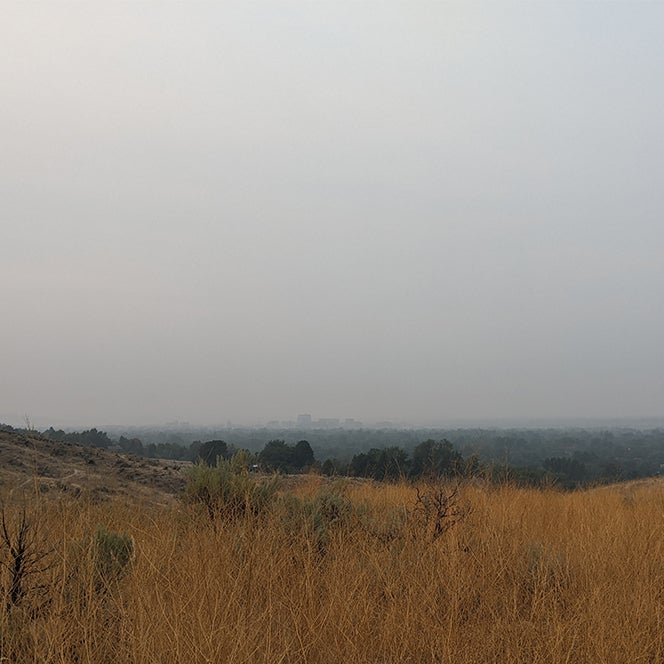
The Idaho Department of Environmental Quality has issued a RED/Unhealthy Air Quality Advisory for the Treasure Valley area due to elevated pollutant levels (mainly smoke particles).
Numerous wildfires burning throughout California and Oregon are responsible for the decreased air quality, and these conditions could continue through the end of the week or longer. This information and resources can help you monitor the air quality index and make decisions both for yourself and anyone involved in outdoor activities under your responsibility.
Air pollutants can cause breathing difficulties for children, the elderly, teenagers and people with respiratory problems. Those individuals who are sensitive to increased particulate matter, gaseous pollutants such as ozone or smoke, are encouraged to avoid prolonged or strenuous outdoor activity. It is also recommended that all other individuals limit prolonged or strenuous activity outdoors during a RED/Unhealthy Air Quality Advisory.
For details on the Idaho Department of Environmental QualityAir Quality Advisories and to receive near real-time Air Quality Index measurements, visit the Idaho Department of Environmental Quality or call (208) 373-0313 for recorded forecast information.
Some additional recommendations from Boise State University Health Services:
- Check out the Environmental Health Safety and Sustainability fact sheet for outdoor workers (PDF), athletes, preschool students and participants in campus sponsored outdoor recreational programs during times of high atmospheric particulate concentrations.
- Find more resources about air quality at the Idaho Department of Environmental Quality’s Air Quality in Idaho information site.
- If you are impacted by the air quality and need to stay home during RED/unhealthy conditions or higher, make sure you notify your supervisor or instructor. For employees and students who are part of the sensitive group and experiencing symptoms, you might need to stay home earlier than RED/unhealthy; once again, contact your instructor or Human Resource Services at (208) 426-1616 for accommodations.
- If you feel short of breath, wheezing, chest pain, heart palpitations, extreme fatigue or difficulty moving due to unhealthy air quality levels, contact University Health Services at (208) 426-1459. If it is an emergency situation, please dial 911.
For specific Air Quality Index questions, contact Suzy Arnette in the Department of Environmental Health, Safety and Sustainability at (208) 426-3906.